Does coffee cause acne?
Debunking the myths: Does coffee cause acne? Explore the connection between your favorite brew and skin health in our insightful article.
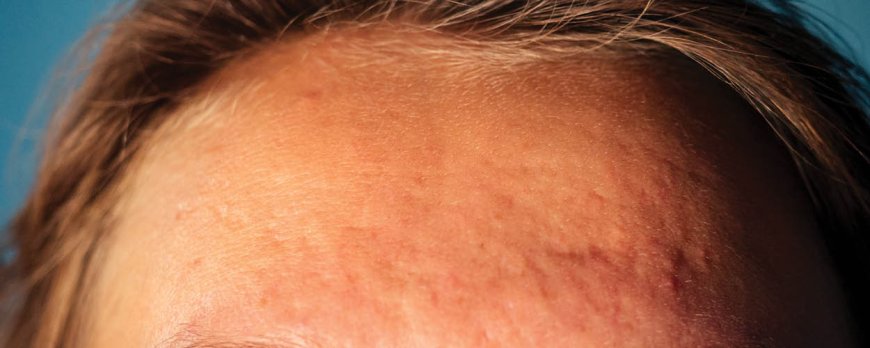
Does Coffee Cause Acne?
Coffee is often blamed for causing acne, but is there any truth to this commonly held belief? The relationship between coffee and acne is complex, and it's important to explore the various factors that come into play.
Key Takeaways:
- Coffee itself does not directly cause acne, but certain factors associated with its consumption may worsen existing acne.
- Caffeine, found in coffee, can increase stress hormone levels and disrupt sleep, potentially exacerbating acne.
- The additives commonly used in coffee, such as milk and sugar, may contribute to acne breakouts for some individuals.
- Research on the direct link between coffee and acne is limited, and further studies are needed.
- Coffee is rich in antioxidants, which could potentially benefit the skin and potentially reduce acne breakouts.
The Complex Relationship between Coffee and Acne
To understand the impact of coffee on acne, it's important to recognize the complexity of their relationship. While coffee itself does not directly cause acne, there are certain factors associated with coffee consumption that may worsen existing acne for some individuals.
One of the main culprits is caffeine, a key component of coffee. Caffeine has the potential to increase stress hormone levels in the body, which can contribute to inflammation and hormonal imbalances that exacerbate acne. Furthermore, caffeine can disrupt sleep patterns, which may also negatively affect skin health.
Another consideration is the additives often found in coffee, such as milk and sugar. For some individuals with acne-prone skin, these additions can contribute to acne breakouts. Milk, in particular, contains hormones and proteins that may trigger inflammation and clog pores, while sugar can elevate insulin levels and promote inflammation in the body.
It's important to note that research on the direct link between coffee and acne is limited, and more studies are needed to establish a clear connection. However, it's worth mentioning that coffee is rich in antioxidants, which can have potential benefits for the skin. Antioxidants help fight free radicals and oxidative stress, which are implicated in acne development. As such, coffee may have some positive effects on skin health.
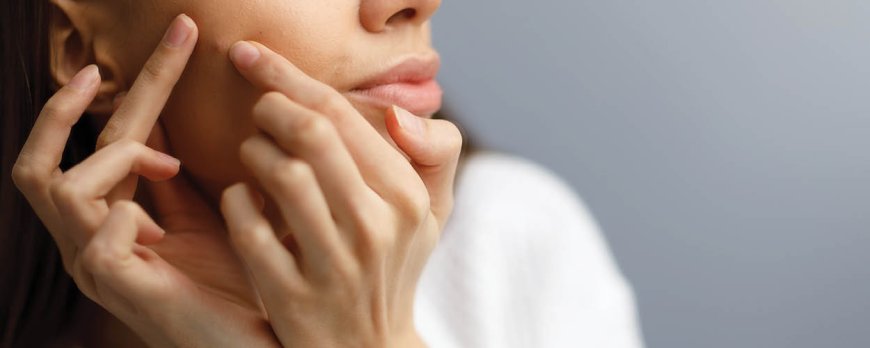
The Role of Caffeine
Caffeine, a key component of coffee, has drawn attention for its potential impact on acne breakouts. It is believed that caffeine can increase stress hormone levels in the body, such as cortisol, which may contribute to the worsening of acne. Excess cortisol can stimulate the sebaceous glands to produce more oil, leading to clogged pores and an increased likelihood of breakouts.
Furthermore, caffeine consumption has been linked to sleep disruption. Lack of quality sleep can impact various aspects of health, including skin health and acne. When we don't get enough restful sleep, our bodies may become more vulnerable to inflammation, which can exacerbate acne symptoms.
However, it's important to note that the impact of caffeine on acne can vary from person to person. Some individuals may find that reducing their caffeine intake leads to a noticeable improvement in their acne, while others may not experience any significant changes. It is advisable to pay attention to your own body and observe whether caffeine is a trigger for your acne breakouts.
Considering Individual Factors
- Take note of your caffeine consumption: Monitor your intake of coffee and other caffeinated beverages to determine if there is a correlation between your caffeine consumption and acne breakouts.
- Observe your sleep patterns: Pay attention to how caffeine affects your sleep quality and duration. If you notice that consuming coffee in the evening disrupts your sleep, it may be worth considering reducing your intake.
- Listen to your skin: Every individual's skin is unique, so it's important to observe how your skin reacts to caffeine. If you notice a relationship between increased coffee consumption and worsening acne, it may be worthwhile to explore alternatives or cut back on your caffeine intake.
Ultimately, it's a good idea to consult with a healthcare professional or dermatologist for personalized advice. They can help you understand the specific impact of caffeine on your skin and recommend suitable changes to your coffee consumption if necessary. It's important to consider individual factors and make informed decisions about your own skin health.
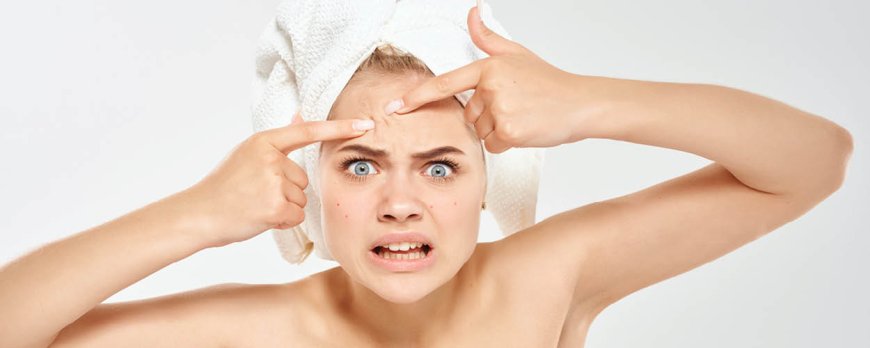
Milk and Sugar: The Culprits?
While coffee itself may not be solely responsible for acne, could the milk and sugar often paired with it play a role in exacerbating skin issues?
When it comes to coffee consumption and skin health, additives like milk and sugar are worth considering. Milk, especially whole milk, contains hormones that may stimulate oil production in the skin, potentially leading to clogged pores and acne breakouts. Similarly, sugar can contribute to inflammation and insulin spikes, which are known to worsen acne. These factors are particularly important to note for individuals with acne-prone skin.
Not everyone will experience adverse effects from milk and sugar in their coffee, as everyone's body reacts differently. However, it may be worth experimenting with alternatives such as almond or oat milk and natural sweeteners like stevia or cinnamon, which have lower potential to aggravate acne. By making these small changes, individuals may be able to determine if there is a correlation between their coffee consumption and skin health.
To gain insight into your body's specific responses, it is recommended to keep a diary of your coffee consumption and any changes in your skin. This can help identify patterns and provide a better understanding of how coffee, along with its additives, may be affecting your skin. Additionally, consulting with a healthcare professional or dermatologist can provide personalized advice and further guidance on managing acne.
Limited Research and the Need for More Studies
Despite the prevalence of the belief that coffee causes acne, there is a lack of comprehensive research on this specific topic. While some studies have explored the relationship between coffee and acne, the findings have been inconclusive and often based on small sample sizes. This limited research makes it difficult to draw definitive conclusions about the direct link between coffee consumption and acne breakouts.
Although anecdotal evidence suggests that coffee may worsen acne for some individuals, it is important to differentiate between personal experiences and scientific evidence. The complexity of acne as a skin condition and the multitude of factors that can contribute to its development further highlight the need for more research in this area.
To determine the true impact of coffee on acne, larger, well-designed studies are needed. These studies should take into account various factors like caffeine content, coffee preparation methods, and individual skin types. By conducting more rigorous research, we can gain a better understanding of the potential effects of coffee on acne and provide more accurate guidance for those seeking to manage their skin health.
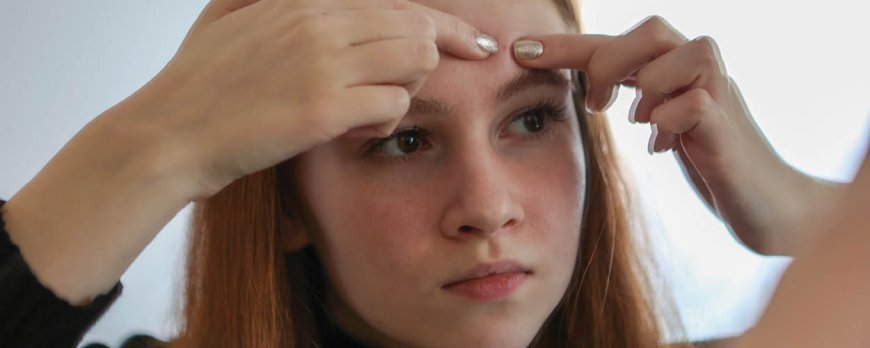
Antioxidants in Coffee
While coffee has been associated with potential negative effects on acne, it also contains antioxidants that could have positive impacts on skin health. Antioxidants are compounds that help protect our cells from damage caused by free radicals, unstable molecules that can contribute to inflammation and skin issues, including acne breakouts. The antioxidants found in coffee, such as chlorogenic acid and melanoidins, have been shown to have anti-inflammatory and antimicrobial properties, which may help reduce redness, inflammation, and the growth of bacteria that contribute to acne.
Furthermore, coffee is a rich source of polyphenols, a type of antioxidant that has been linked to various health benefits, including potential improvements in skin health. Polyphenols have been shown to have antioxidant, anti-inflammatory, and antimicrobial effects, which may help maintain a healthy skin barrier and reduce the risk of acne breakouts. However, it's important to note that the exact mechanisms by which coffee antioxidants affect acne are not yet fully understood, and more research is needed to establish a definitive connection.
When considering the impact of coffee on acne, it's important to take into account individual factors, including overall diet and lifestyle. While coffee may have the potential to affect acne, it is just one piece of the puzzle. Other factors, such as stress levels, sleep patterns, skincare routine, and overall diet, can also play a significant role in skin health. Taking a holistic approach and considering all these factors in conjunction with coffee consumption can help individuals better manage their acne and overall skin health.
It's worth noting that everyone's skin is unique, and what works for one person may not work for another. Some individuals may find that reducing or eliminating coffee from their diet has a positive impact on their acne, while others may not notice any significant changes. If you're concerned about the relationship between coffee and acne, it's always a good idea to consult with a healthcare professional or dermatologist. They can provide personalized advice based on your specific circumstances and help guide you towards the best course of action for your skin health.
Considering Individual Factors
It is crucial to take into account individual factors and conduct personal experiments to ascertain the impact of coffee consumption on acne. Every person's body reacts differently to certain substances, and coffee is no exception. Some individuals may find that their acne worsens when they consume coffee, while others may not experience any noticeable changes. To better understand the relationship between coffee and acne, it is important to consider these individual factors and make adjustments accordingly.
Factors to Consider:
- Genetics: Your genetic makeup plays a significant role in how your body responds to certain substances. Some individuals may have a genetic predisposition to acne, and coffee consumption may exacerbate their symptoms. On the other hand, some people may have a genetic advantage that enables them to consume coffee without adverse effects on their skin.
- Overall Diet: The overall composition of your diet can also influence the impact of coffee on your acne. It is important to consider whether coffee is consumed alongside other potential acne triggers, such as processed foods, sugary snacks, or dairy products.
- Lifestyle Factors: Other lifestyle factors, such as stress levels, sleep patterns, and skincare routine, can interact with coffee consumption and affect acne. High stress levels and lack of sleep, combined with coffee's potential to increase stress hormone levels, may contribute to acne flare-ups.
By keeping track of your coffee consumption and monitoring changes in your skin, you can gain valuable insights into how coffee affects your acne. You may want to consider gradually reducing or eliminating coffee from your diet to see if it leads to improvements in your skin. Alternatively, you could experiment with different brewing methods or types of coffee to gauge their impact on your acne. Remember, what works for one person may not work for another, so it is important to find what works best for you through personal experimentation.
Seeking Professional Advice
If you are concerned about the impact of coffee on your acne, seeking professional advice is recommended. While the relationship between coffee and acne is complex, consulting a healthcare professional or dermatologist can provide personalized guidance based on your specific circumstances.
During a consultation, a healthcare professional can assess your individual factors and help determine the potential effects of coffee consumption on your skin. They can take into account factors such as your overall health, acne severity, and any other skin conditions you may have.
Furthermore, a professional can guide you in experimenting with changes to your coffee consumption. They may suggest modifications to your diet, lifestyle, or skincare routine to help manage acne symptoms. They can also offer recommendations on alternative beverages or ways to enjoy coffee that may be less likely to exacerbate acne.
Remember, every individual is unique, and what works for one person may not work for another. Seeking expert advice can provide valuable insights and ensure that you make well-informed decisions regarding your coffee consumption and its potential impact on your acne.
Lifestyle Factors and Acne Management
While coffee may play a role in acne management, it is essential to consider other lifestyle factors that can impact skin health. Maintaining a healthy lifestyle not only helps manage acne but also promotes overall well-being. Here are some important aspects to consider:
- Diet: A balanced diet rich in fruits, vegetables, and whole grains provides essential nutrients for skin health. Avoiding processed foods, excessive sugar, and greasy foods may help reduce acne breakouts.
- Exercise: Regular physical activity helps improve blood circulation, which may promote healthier skin. Exercise also helps reduce stress levels, which can contribute to acne flare-ups.
- Stress Management: High levels of stress can trigger hormonal changes that lead to acne breakouts. Finding healthy coping mechanisms, such as meditation, deep breathing exercises, or engaging in hobbies, can help reduce stress and improve skin health.
- Skincare Routine: Establishing a consistent skincare routine that includes gentle cleansing, exfoliation, and moisturizing can help keep the skin clean and free of excess oil, reducing the risk of acne.
It is important to remember that everyone's skin is unique, and what works for one person may not work for another. Experimenting with different approaches and products can help determine the most effective acne management plan.
If you are experiencing persistent acne or have concerns about the impact of coffee or other factors on your skin health, it is advisable to consult with a healthcare professional or dermatologist. They can provide personalized advice based on your specific circumstances and help develop an effective acne management plan.
Personal Experiences and Anecdotal Evidence
Many individuals have shared personal experiences linking coffee consumption to acne, but it is essential to differentiate between personal anecdotes and proven scientific evidence. While anecdotal evidence can provide insights into the experiences of individuals, it cannot be considered as conclusive proof of a direct relationship between coffee and acne.
It is important to note that acne can be influenced by various factors, including genetics, hormones, and lifestyle choices. Coffee consumption is just one of the many factors that may impact acne breakouts.
Some individuals claim that they experienced an increase in acne breakouts after consuming coffee, while others report no such correlation. The variations in personal experiences may be attributed to individual differences in how the body reacts to coffee and other factors.
Facing the Coffee-Acne Dilemma
- Understand that coffee itself does not directly cause acne.
- Consider factors associated with coffee consumption, such as caffeine, milk, and sugar.
- Be mindful of your unique physiology and skin type when evaluating the impact of coffee on your acne.
- Experiment with reducing or eliminating coffee from your diet to observe any changes in your skin.
- Consult a healthcare professional or dermatologist for personalized advice based on your specific circumstances.
Ultimately, it is vital to approach the coffee-acne relationship with caution and consider multiple factors in acne management. While personal experiences can be helpful, informed decision-making should be based on scientific evidence and professional guidance.
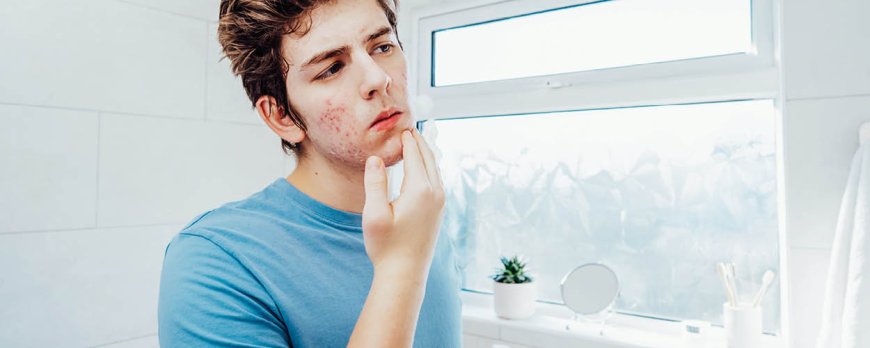
Conclusion
While the relationship between coffee and acne remains complex, it is important to consider individual factors and the current limited scientific evidence to make informed decisions about coffee consumption and its potential impact on acne.
Coffee itself does not directly cause acne, but certain factors associated with coffee consumption may worsen existing acne. Caffeine, a prominent component of coffee, can increase stress hormone levels and disrupt sleep, which could potentially exacerbate acne breakouts.
In addition, the milk and sugar often added to coffee may contribute to acne for some individuals. These additives can affect certain individuals with acne-prone skin, although the extent of their impact may vary from person to person.
However, it is important to note that research on the direct link between coffee and acne is limited, and more scientific studies are needed to provide more conclusive evidence. Coffee does contain antioxidants, which have the potential to benefit the skin. These antioxidants may contribute to supporting healthy skin and potentially reducing acne breakouts.
Ultimately, the impact of coffee on acne can vary greatly depending on individual factors. It is recommended to consider personal experiences, experiment with changes to coffee consumption, and seek professional advice from healthcare professionals or dermatologists to determine the most suitable approach for managing acne and maintaining healthy skin.
FAQ
Does coffee cause acne?
The relationship between coffee and acne is complex. Coffee itself doesn't cause acne, but certain factors associated with coffee consumption may worsen existing acne.
Can coffee worsen acne?
Caffeine in coffee can increase stress hormone levels and disrupt sleep, potentially exacerbating acne.
Do milk and sugar in coffee contribute to acne?
The milk and sugar often added to coffee may contribute to acne for some individuals, particularly those with acne-prone skin.
Is there strong research on the direct link between coffee and acne?
Research on the direct link between coffee and acne is limited, and more studies are needed to provide conclusive evidence.
Can coffee have benefits for the skin?
Coffee is a rich source of antioxidants, which could potentially benefit the skin. However, more research is needed to fully understand its impact on acne.
Do individual factors play a role in how coffee affects acne?
Yes, individual factors such as genetics, overall lifestyle, and skincare routine can influence how coffee affects acne. It's important to consider these factors and experiment with changes to coffee consumption.
Should I seek professional advice regarding coffee and acne?
Consulting a healthcare professional or dermatologist is recommended for personalized advice regarding the relationship between coffee and acne. They can provide guidance based on your specific circumstances.
What other lifestyle factors should I consider for acne management?
In addition to coffee consumption, factors such as diet, exercise, stress levels, and skincare routine should be considered for holistic acne management.
Can personal experiences be helpful in understanding coffee's impact on acne?
Personal experiences and anecdotal evidence can provide insights, but it's important to distinguish between personal anecdotes and scientific evidence in understanding the relationship between coffee and acne.
What is the conclusion regarding coffee and acne?
The relationship between coffee and acne is complex, and more research is needed. It's important to consider individual factors and consult a professional for personalized advice.

































































































































